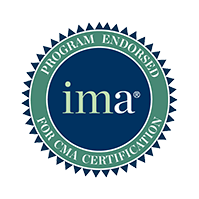Accounting Certifications
The School of Accounting at Drake University prepares students for careers as accounting professionals and business leaders, as well as further graduate study. Additionally, the School of Accounting assists students in preparing for CPA and other professional certification examinations. This preparation includes exam topic coverage in the classroom, expert accounting faculty advising, and access to a CPA exam review course. Drake accounting students and graduates qualify for discounted tuition for the exam review through Becker CPA Review.
While an accounting degree alone will open up numerous opportunities, professional certification is the next step. You can pursue a wide range of accounting related certifications; however, the most prestigious and recognizable is Certified Public Accountant (CPA).
Unlike other certifications, the CPA designation is a license granted by a state board of accountancy. Every state, as well as the District of Columbia, Guam, Puerto Rico, and the U.S. Virgin Islands, has a board that licenses and regulates Certified Public Accountants. CPAs are thus similar to attorneys, physicians, and teachers. For an overview of the process of becoming a CPA, visit This Way to CPA.
Becoming a licensed CPA requires completion of three steps: education, examination, and experience, often called the 3 E’s. A CPA applicant must possess a bachelor’s degree with specified coursework in accounting and business. Most states also require 150-credit hours of total coursework before certification. Additionally, an applicant must successfully complete the Uniform CPA Examination. Visit the world's largest member association of the accounting profession, the American Institute for CPAs for information on the CPA examination. The final requirement is obtaining one to two years of relevant work experience.
Completion of the education, examination, and experience requirements will allow you apply for licensure as a CPA. Retaining the designation requires completing a minimum of hours of continuing education and adherence to the profession’s standards of ethical conduct.
Please be aware that licensing requirements differ among the states. It is important to verify the requirements of the state you anticipate seeking licensure in. Many states mandate specific courses. Individual state CPA requirements may be found on the website of the National Association of State Boards of Accountancy (NASBA).
Additional certification opportunities exist in accounting. These certifications are sponsored by private organizations and are generally more specialized. Similar to becoming a CPA, these other certifications possess education, examination, and experience requirements. The education requirement usually entails the possession of an undergraduate degree, without any specific coursework.
There are too many certification opportunities to list here, however the most popular are Certified Management Accountant (CMA), Certified Internal Auditor (CIA), Certified Information Systems Auditor (CISA), Certified Fraud Examiner (CFE), and Certified Government Financial Manager (CGFM).



